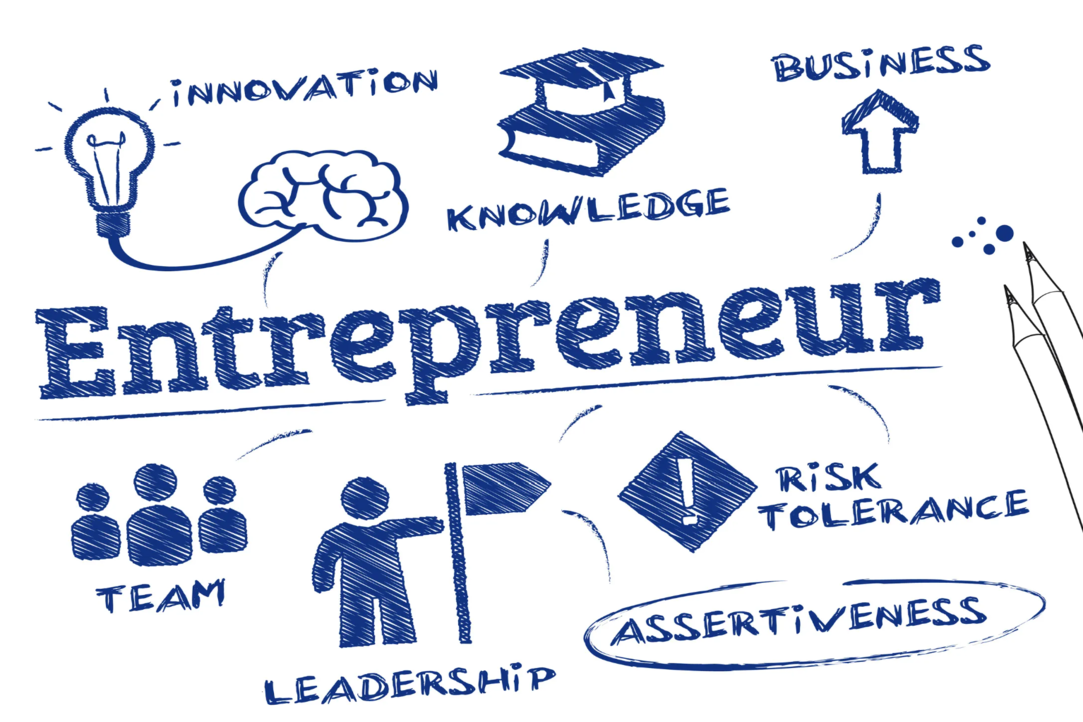Is it Necessary to Have a Degree to Launch a Business?

We have seen many cases of people successfully launching their own business, including our former classmates, friends and colleagues. But what if a person wants to start up a business? But doesn’t have a relative education, let’s say, in economics or entrepreneurship?
We talked to first year HSE MA student Robert Boesch, who graduated from University of Liechtenstein las year and now continues his studies in HSE.

Robert Boesch,
HSE international student of International Business Program
My Bachelor’s is Business Administration and Entrepreneurship and Master’s is International Business. Actually, I graduated from Business High School in Austria, so by the time I had to apply here, I already knew that business area was my path, kind of.
I would say that the education process differs a lot: at the University of Liechtenstein we had lots of practice in studying different cases, analyzing the most common mistakes and paying attention to building real business models, and here we are mostly focused on theory, which is great if you are not familiar with the area.
Of course, any successful businesses are always based on unique crazy idea, but the statement that the “idea is just enough” is wrong, for sure. A relative degree would not lift the veil on “how to become a successful entrepreneur in five steps”, obviously, but it would give you basic understanding and a clear vison on how the world is build in terms of entrepreneurship. There are many not that obvious things about doing business, which you may not think of on the first stages of launching, but then it may be too late. People usually underestimate the process of gathering information about factors and conditions that affect their industry, paying attention just to the factors that lie on the surface, such as current legislation, threats from the competitors and, let’s say, seasonal fluctuations in demand. But there are much more far-reaching non-obvious factors. Reliance to the services provided (for instance, suppliers) by third parties and the quality of such services, as well as their cost, may indirectly have a negative impact on the business; distribution of products and some of the marketing campaigns and methods of marketing may be unexpectedly financially costly for the products or services you are going to sell; some businesses deeply depend on new technologies in their operations, and lack of access to that technologies may adversely affect the business. Being good at managing money is also not that easy, you should be able to basically calculate which is more cost efficient: to borrow money from a bank and pay back a loan and charged interest afterwards or to attract an investor and to give him a share in your business in return. Also, I would add that while doing business it is usually forgotten that your consumers are the real people, so you should know the basics of consumers behavior and psychology. Last but not least the vocabulary: business world speaks its own language, so you should be familiar with its specialized lexis.
Personally, I have not completed any of such courses, so it is hard for me tell, but as I envision it, full bachelor degree gives you a more broad picture of how things are done. I am talking not only about the knowledge you get, but about the system itself: while at university, you undergo through continuous assessment, doing bunch of presentations, reports, essays, research etc., which strengthen your skills. Moreover, you are surrounded by like-minded people, and this is the key point, since lots of startups are launched by former classmates.
A degree in this area would level up the way you manage your life for sure. This kind of degree teaches you how to evaluate alternatives and make better choices in general. It develops critical-thinking and problem-solving skills to make good decisions. It develops analytical skills to examine data to support good decisions. Math-oriented subjects make you a very well-organized person, bring structure into your life, and finance classes just provide you with a common knowledge, which give you a clear vision of how the system we live in works.
Yeah, I am not arguing, but still, even engineers pay taxes.
Fintech. A basic phone can replace the need to access a bank branch or traditional payment terminal, which was pretty crazy just several years ago. The digitization of financial services and money is going on, so it creates opportunities to build more inclusive and efficient financial services and promote economic development. Fintech is transforming the financial sector landscape rapidly and is blurring the boundaries of both financial firms and the financial sector. Financial markets have seen the entry of standalone consumer fintech firms, new B2B services, and big tech firms. Incumbents have also embraced technology as a strategic priority to improve their products, lower costs, and compete. Adoption and further innovation have accelerated due to the COVID-19 pandemic, with increased digitization across many sectors, including finance, as businesses and individuals adapted to social distancing, and sought efficient ways to connect remotely to government and business services. Now everybody is into crypto-assets, which can bypass existing payment infrastructures. Due to the latest World Bank report, the market value of crypto-assets exhibited various boom-bust cycles reaching an all-time high of something around $3 trillion in November 2021. Some industry estimates suggest that 100-200 million people around the world own or use crypto-assets. But still, most crypto-assets are currently very volatile and often considered an investment asset rather than a medium of exchange or store of value. So, it is a very forward-looking sector. Concerning crypto in particular and fintech in general there are many things to think and to be creative about.
One hundred percent yes. I feel that I will be good at it. Establishing your own company is really personally rewarding, well, and, to tell the truth, financially. Of course, there are one million risks, thousands of sleepless nights and life without weekends, but I am the person who wants to be in a driver’s seat, so I feel that I will be able to deal with all the difficulties and drawbacks. I have not decided yet, where to establish a business since the conditions in different countries differ a lot. In Liechtenstein, for instance, the completion is tough in almost every sector since the taxes are low. In Austria there are really good governmental programs to help with starting a business. Also people are open minded there: you can introduce your products to the market, and with high probability people will but it – they like to abandon old and try novel stuff. In short, there are plenty of things to consider.
Interview by

